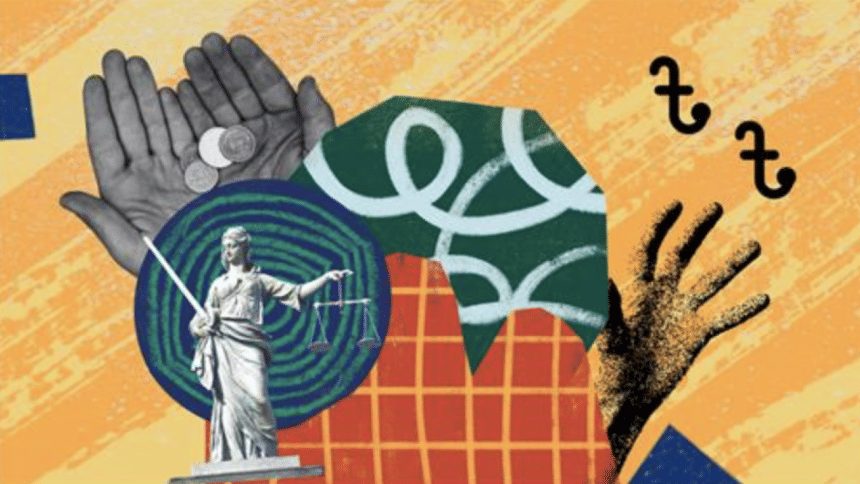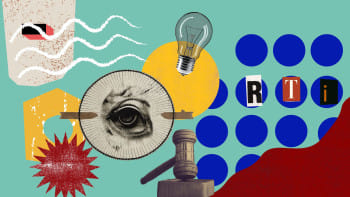Why leaders fail

The title of this article may remind some readers of the acclaimed book Why Nations Fail by Daron Acemoglu (recipient of this year's Nobel Prize) and James Robinson. However, this piece takes a different approach, exploring political psychology rather than political science. In Why Nations Fail, Acemoglu argues that nations succeed when they develop inclusive political and economic institutions that encourage broad participation and innovation. Conversely, countries with extractive institutions—where power is concentrated and leaders, their aides, and elites exploit wealth—are prone to failure.
Political psychology has become increasingly vital for understanding how leaders, officials, and citizens think, feel, and act in political contexts. While political science focuses on institutions and systems of governance, political psychology investigates the individual motivations and behaviours shaping leadership decisions. Drawing from social and personality psychology, political science, and economics, it seeks to understand the psychological drivers of political engagement. Despite its importance, the complexities of political leadership are often overlooked in political psychology, especially regarding the interplay between economic principles and ideologies.
While discussions of discrimination frequently arise, the stark disparity between the ruling class and the general population remains a pressing issue. This inequality is evident in the quality of food, sanitation, education, and healthcare, underscoring a significant divide in living standards. Without addressing this fundamental issue, meaningful reform will be incomplete. Focusing solely on complex economic theories or abstract policies without addressing this social divide will not lead to sustainable change.
The situation in our country is growing increasingly complex, resembling a "cowboy land." Hardworking middle-class citizens face mounting taxes and fees, pushing them from middle-class to lower economic brackets. Meanwhile, a significant portion of the population, labelled as poor, is enticed with free handouts in exchange for political loyalty, creating a cycle of dependency that hinders self-reliance.
Leadership failures are most apparent when decisions exacerbate inequality, suppress free expression, and sustain inefficiencies. These failures often stem from personal agendas that obstruct fair outcomes and hinder Pareto improvements—scenarios where all can benefit without harm to others. The mindsets of political leaders and their advisers are crucial for national development—as the saying goes, "A tree with strong roots laughs at storms." A nation's strength lies in the integrity and vision of its leaders.
In today's discourse, discussions about elites are often linked to exploitation, rooted in moral corruption that fosters unethical behaviour. Morality, shaped by rational and irrational factors, helps us discern right from wrong, though it can sometimes undermine credibility. Traditional morals challenge exploitation, while ethics, grounded solely in rational thought, offer a more consistent framework for moral judgment.
Crises often present opportunities for reflection and reform. While calls for systemic change are widespread, it is essential not to overlook the foundation of all meaningful reforms—embedding moral values in every sphere. This includes addressing the lifestyles and mindsets of government advisers, policymakers, and administrators. Leaders must recognise that their personal lives influence their professional effectiveness. An unchecked pursuit of status fosters corruption and weakens public trust.
A proper mindset is the foundation for lasting reform. Despite recognising the importance of education and healthcare, past leaders have failed to instil positive attitudes and moral responsibility among policymakers. Privileged leaders often neglect their responsibilities, resulting in governance failures. Homes and family dynamics play a critical role in shaping leaders' mindsets. As the saying goes, "Charity begins at home." The values upheld within the family often mirror the principles brought to governance.
History has shown that many infamous leaders possessed rigid personalities marked by excessive control, a lack of empathy, and an absence of resilience—traits often rooted in their early family environments. Additionally, political and bureaucratic corruption tends to arise when greed and self-interest, influenced by pressure from friends and family members, intersect with public interests.
The reality is that much of our population is being raised with a flawed mentality, lacking generosity and empathy within their homes. Many domestic helpers in this region are still treated like modern-day slaves despite a professed belief in social justice. "Early habits die hard"—so, the fact is that social monsters and great achievers alike are cultivated at home. Our nation's future is shaped by how we nurture family values and conduct our personal lives.
Bangladesh is among the nations with the most significant wealth disparities, a troubling statistic. In contrast, more advanced and respected nations have successfully narrowed this gap. Economic inequality remains a pressing challenge, leaving our population dispirited and demoralised. As the saying goes, when blood flows only to the face and shines brightly, it indicates an unhealthy body—a symptom of something deeper. Similarly, Bangladesh's concentration of wealth and infrastructure in specific parts of the capital, marked by skyscrapers and flyovers, does not reflect healthy economic progress. Comprehensive reforms are essential, led by a wise and dedicated team. These leaders and their aides must lead by example, demonstrating their commitment to the nation by forgoing certain luxuries.
For example, many people are compelled to travel abroad for medical care each year, spending at least $3.5 billion—a significant drain on personal and national resources. This trend is due not only to insufficient budgets or poor management but also to a lack of moral commitment to public welfare. To reverse this, policymakers must address the shortcomings in our healthcare system and lead by example, choosing domestic medical facilities for their own care. They might take inspiration from Dr Zafrullah Chowdhury, who, despite having the means to seek treatment abroad, chose to receive care within Bangladesh and even developed a dialysis centre. Such commitment would also address "medical poverty" and foster greater confidence in our healthcare system. Prioritising these reforms will help build a more equitable healthcare system for all citizens.
Bridging the gap between society's highest and lowest strata is essential, beginning with leaders adopting modesty and practicality in their personal lives. This could include reducing personal aides and unnecessary comforts. While these changes may seem unusual, they would set a strong example for present and future governments.
We urgently need a leader who can guide our nation at this pivotal moment when many have strayed from moral values. Public spectacles of violence are alarmingly common, and acts of kindness are often seen as weakness. Our society is increasingly ensnared in a web of nitpicking and gaslighting. In these turbulent times, most of the present government's team members—part of the Baby Boomer or Generation X cohort, who have navigated the pressures of a competitive world and derived self-worth from their careers—now find themselves guiding Generation Z, which constitutes nearly one-third of our population. This generational contrast presents a unique opportunity: Gen Z, eager for change, champions a more humane world that values generosity toward people and nature. It is heartening to witness this tech-savvy generation, having recently weathered the trials of the Covid pandemic and engaged with various dimensions of democracy, beginning to grasp the profound significance of compassion and emerging with greater resilience and empathy.
Now, we stand at a rare crossroads where we can shape history by blending the wisdom of seasoned leaders with the fresh perspectives of the young. When intellectuals or scholars embrace immorality and wickedness, they must be left behind. Together, we can create a society where kindness reigns supreme, transforming challenges into opportunities for growth and understanding.
Dr Rubaiul Murshed is a healthcare management expert and founder of Shomman Foundation. He can be reached at [email protected].
Views expressed in this article are the author's own.
Follow The Daily Star Opinion on Facebook for the latest opinions, commentaries and analyses by experts and professionals. To contribute your article or letter to The Daily Star Opinion, see our guidelines for submission.

 For all latest news, follow The Daily Star's Google News channel.
For all latest news, follow The Daily Star's Google News channel. 










Comments